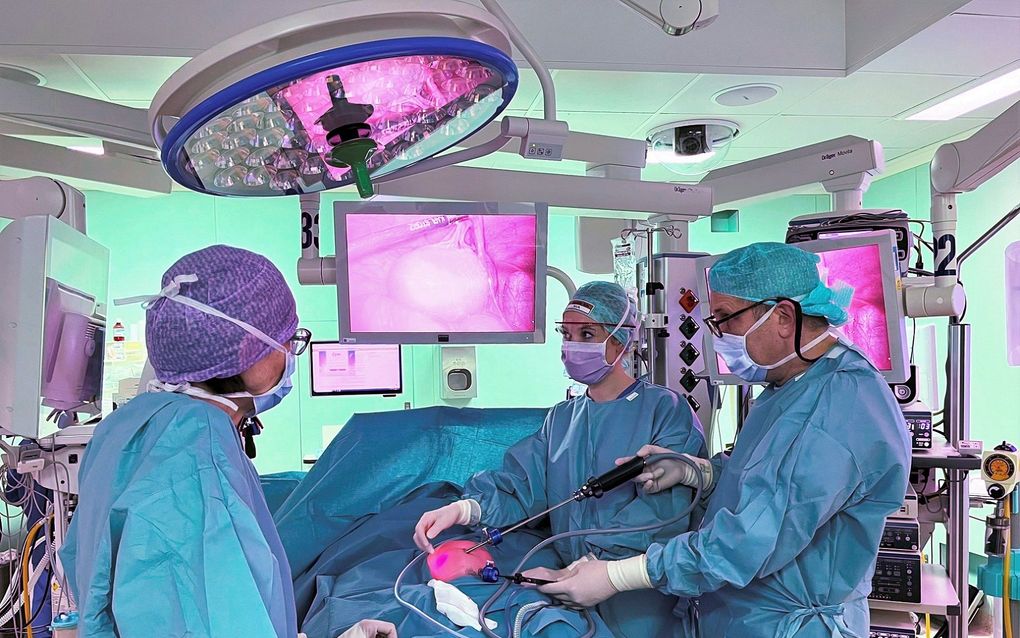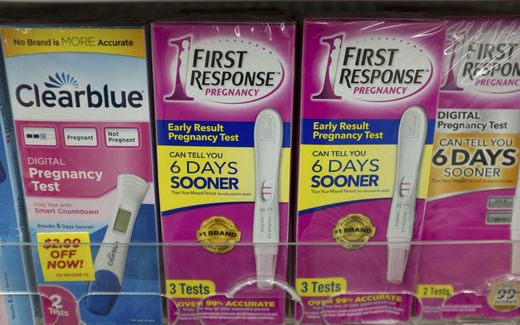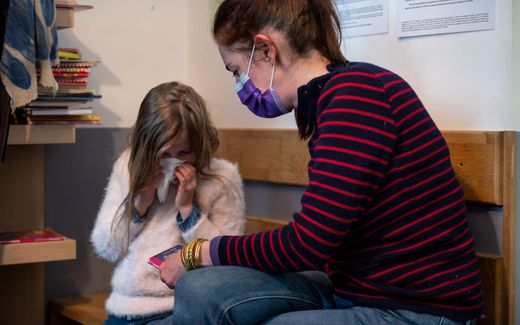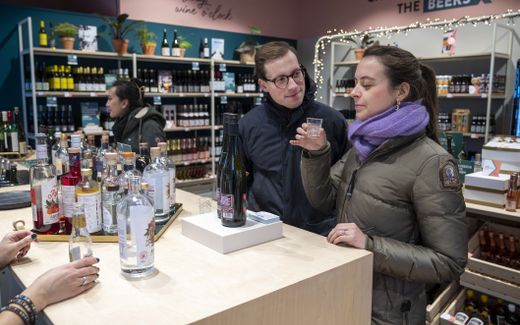Paediatric surgeon amazed by God's creation of human body
11-03-2023
Christian Life
Maarten Costerus, RD

Surgeons treat a baby girl. Photo RD
Christian Life
Human beings are the crown jewel of God's creation. Paediatric surgeon Justin de Jong (53) can marvel at it daily. "The gastrointestinal system works phenomenally. It's like a factory."
A baby of a few months old lies in the surgery room at the Amsterdam University Medical Centre in the Netherlands. The girl needs surgery because of a cyst, a cavity full of fluid, in her abdomen. The swelling detected on ultrasound is causing problems and needs to be removed. De Jong performs the keyhole surgery, assisted by an operating assistant and a co-assistant. A paediatric anaesthesiologist put the baby under anaesthesia beforehand. Green cloths cover the girl.
Screens
Through a tiny hole below the belly button, the surgeon inserts an endoscope, a thin tube with a video camera and lighting. De Jong uses large screens around the bed to visualise the organs. Rounded lobes indicate the colon. An angular, purple-brown organ represents the liver. The uterus is still barely recognisable.

A grey-green balloon stands out: the cyst. Because it is attached to the omentum, an abdominal membrane, De Jong calls it an omentum cyst.
Through the abdominal wall, the surgeon inserts a needle. He pricks it into the cyst, then draws the fluid from it. He pulls out the empty balloon with a small clip. The assistant then detaches it from the peritoneum. The membrane goes back into the abdomen. A few more stitches and the operation is done.
Virginal
"A baby's belly looks virginal," De Jong had said in the coffee room of the surgical complex moments before. "There is virtually no fat between the organs, as in most adults. Blood vessels can be seen beautifully as a result."

De Jong mainly performs surgery on children with congenital defects, such as a malformed oesophagus or a missing anus. "Usually, everything functions well except for one little part. We can do something about that."
His patients include preterm infants from 24 weeks old and 500 grams of weight. "All organs are already laid out by then but still need to grow further. The intestines are like little worms."
The paediatric surgeon, who is an elder in the reformed congregation of Linschoten: "I earn a living by the grace of the Fall, when disease and misery entered the world. I am confronted with that every day."
Healing
The body is ingenious, De Jong believes. "Take the eye alone. The lens refracts light rays and projects them onto the retina. This allows us to perceive things around us. The brain stores these images and can also recall them, allowing us to recognise people, for example."
De Jong also finds the body's healing ability amazing. "It is extraordinary that a wound heals by itself, and usually only a scar remains."

The surgeon sometimes performs operations in which he stitches pieces of intestine together. "The intestines then grow together by themselves. Very special. If that doesn't go well, leakage occurs."
De Jong did his PhD on the gastrointestinal system. "That works phenomenally," he says. "It's like a factory. The stomach and pancreas produce digestive juices. The stomach porter determines the amount of food that can leave the stomach. If the food is very fatty, a hormonal process causes this sphincter to let little food through. The small intestine then absorbs the nutrients. We excrete the residual waste. A magnificent system. The more I look into it, the more impressed I am with it."
Blockades
"Only when something does not work, you start to realise how important it is that all parts work properly," says the surgeon. He cites the so-called "pseudo-obstruction syndrome" as an example. Although no blockades can be seen anywhere in the intestine, children with this condition cannot eat. The body rejects everything again. Food is therefore given to them by drip for life. "We live in a rich country and can pay for this treatment. But in, say, Suriname, such a child would not survive. We are privileged."
This article was translated by CNE.news and published by the Dutch daily Reformatorisch Dagblad on March 6, 2023
Related Articles





